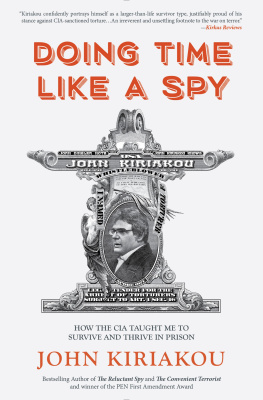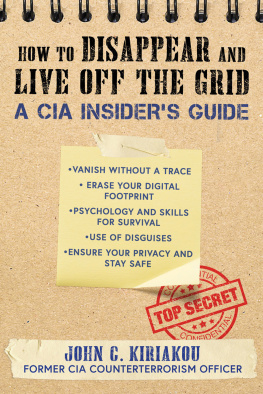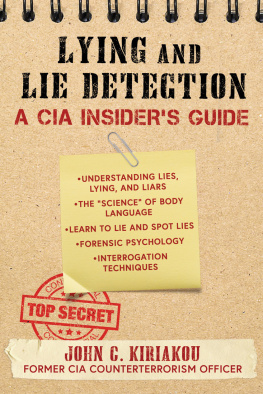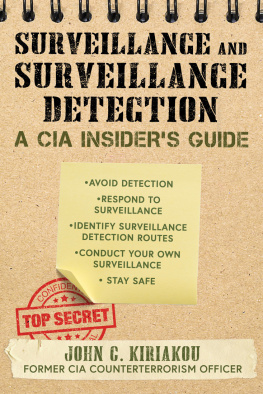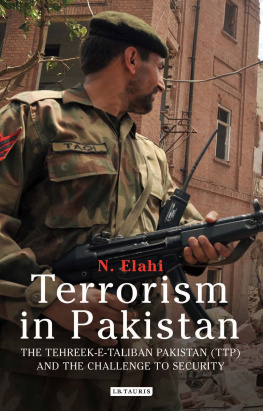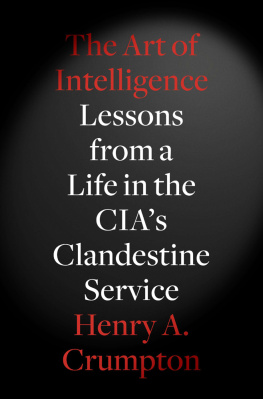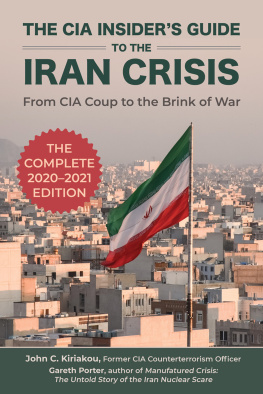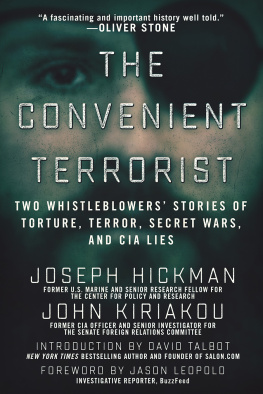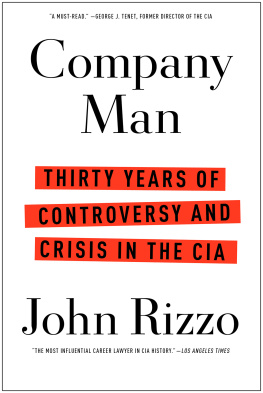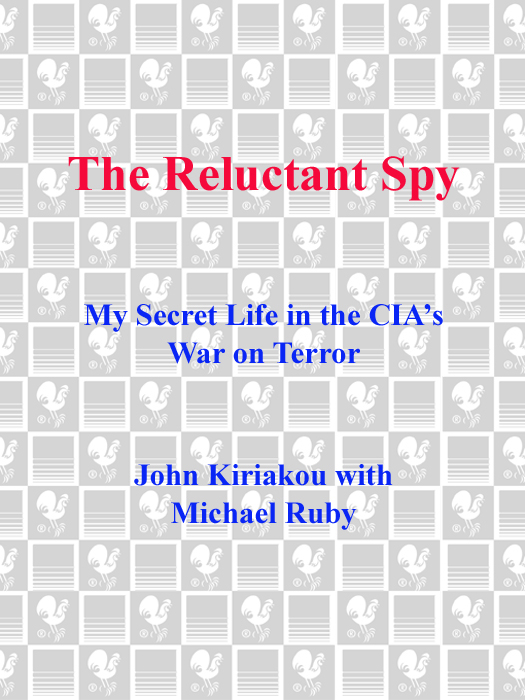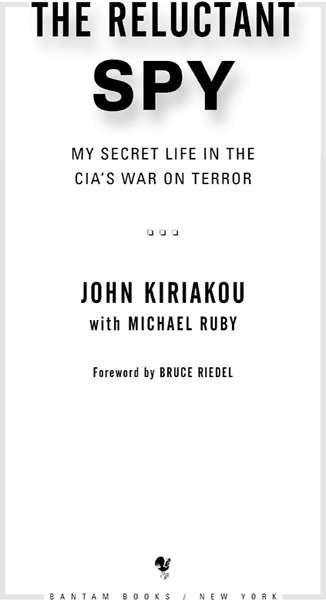FOREWORD
by Bruce Riedel
IN THE INTELLIGENCE business you learn early who you can rely on to get the job done right. John Kiriakou is one of those people. In a brilliant career he demonstrated the ability to understand what is important in confused and complex situations and how to judge information to discern how reliable and accurate it is. In this book he provides unique insights into the world of contemporary intelligence analysis and collection and into the real-world battle America is fighting against terrorism. Every American who wants to understand that battle needs to read this book; any American who wants to know what it is really like to work as an intelligence officer in the CIA should start here.
The intelligence business is a unique one. It is not a science, although it uses advanced science. As an intelligence officer, you try to peer into the future with only a few of the facts you need to see ahead. Your opponent will use deception and concealment to mislead you. You must always check and recheck your facts and your assumptions. An Israeli colleague of mine has aptly described it as more poetry than science, because those who are really good at it seem to see rhythms and patterns that are not obvious to most. In this book we see how that translates into action in the field, in trying to discern whether an enemy can be persuaded to turn sides, commit treason for our side, or provide information on what the enemy is planning. We also see how it works at headquarters where information from hundreds of sources must be deciphered, evaluated, and judged so that it can be presented to policy makers in a concise form with the insights they need to fashion our nations future.
I first got to know John in August 1990. At the time I was deputy chief of the Persian Gulf Task Force set up in the early hours of August 3, 1990, after Iraq had invaded Kuwait. I was working without sleep for days at a time, often rushing down to the White House with the director of central intelligence to back him up at meetings of the National Security Council with President George H. W. Bush as we sought to assess Iraqs next moves from fragments of intelligence information. A relatively new officer but with expertise on Iraq and Kuwait, John was a crucial part of my team that was following the crisis around the clock from the CIAs watch office. I came to respect his judgment and knew I could rely on the analysis and information he gave me.
Our careers intersected at other times as well. We were both at the Khobar Towers in Saudi Arabia in June 1996 within hours after Hezbollah terrorists blew up a U.S. Air Force barracks and killed or wounded dozens. We both were sobered by the scene of devastation, which would be a portent of what was to come in the years ahead.
Much of the heart of this book is about the war against al-Qaeda that the CIA has been fighting since the late 1990s. Al-Qaeda is a difficult and dangerous adversary. Despite inflicting many blows on it, we have yet to destroy its top leadership, Osama bin Laden and Ayman al-Zawahiri. We squandered our best chance to do so after we had routed al-Qaeda from Afghanistan in 2001 and had them on the run in Pakistan. The capture of Abu Zubaydah that John led was one in a series of dramatic takedowns that offered the promise of getting all the way to the top.
Instead, our attention and critical intelligence resources got diverted to an unnecessary war in Iraq. Johns book provides important new insights into how that happened, what it meant for al-Qaeda, and how little serious analysis was done about the implications of going after Saddam instead of Osama. There are crucially important lessons to be learned from this story about how intelligence can be misused by those in power and the costs of doing so.
John also writes in depth about the torture issue and its place in the struggle against al-Qaeda. As a country we need to get to the bottom of what happened in the CIA and in the White House regarding torture after September 11, 2001. Accountability is critical in a democracy. Our national conscience demands no less. This book is an important milestone in that process.
Espionage is a dangerous business. The terrorists have killed some of our very best officers over the past three decades. I will never forget burying one of them at Arlington National Cemetery. Johns dramatic narrative reminds us that this is neither a game nor an adventure story. The men and women of the CIA who risk their lives, and sometimes the lives of their families, deserve our understanding, respect, and gratitude. Above all they deserve political leadership that puts them at risk only for good reason and asks them to uphold only the best of America.
AUTHORS NOTE
EVERY EMPLOYEE OF the Central Intelligence Agency agrees to submit for clearance by the agencys Publications Review Board any material he or she prepares for publication or other use in the public domain. This requirement extends to all former employees as well. The CIA also requires any author to include the following disclaimer:
All statements of fact, opinion, or analysis expressed are those of the author and do not reflect the official position or views of the CIA or any other U.S. Government agency. Nothing in the contents should be construed as asserting or implying U.S. Government authentication of information or Agency endorsement of the authors views. This material has been reviewed by the CIA to prevent the disclosure of classified information.
This book went through several reviews by the CIAs publications board, which, to its credit, allows authors to appealand to continue to appealits demands for changes and redactions. In the end, we were required to change some names; to obscure or eliminate certain locales; and, on a few occasions, to obscure a true event or series of events. We understand the need for these changes: Much of the work of the U.S. government can and should lend itself to greater transparency. Much of what the CIA does can and should remain secret because the release of certain information could jeopardize ongoing operations or relationships or otherwise compromise U.S. national-security interests.
PROLOGUE
BOB GRENIER WAS excited, which was unusual because he was normally among the coolest of cool customers.
John, get here as soon as you can, he said. Something very important has come up.
It was late February 2002, and Id arrived in Pakistan only a few weeks earlierdispatched from CIA headquarters to become the new head of counterterrorism operations in a country with the third largest Muslim population in the world.
When I got to our offices, Grenier, the senior CIA officer in Pakistan, already had gathered a small group of FBI and CIA people to hear his news. Wed received information overnight from headquarters that Abu Zubaydah was in Pakistan. To be precise, he was in Faisalabad or one other Pakistani city.
Weve got to catch him, my boss said, looking at me, and we want him alive.
He didnt have to say it a second time. After the mass murders of September 11, 2001, we had taken the fight to al-Qaeda in Afghanistan, with the CIA in the lead. Wed ousted the Taliban and rousted Osama bin Laden and his thugs from his stronghold in the cave complex at Tora Bora. But we hadnt captured or killed bin Laden or many of his top people, who fled to mountain villages along the Afghanistan-Pakistan border. Abu Zubaydah was part of bin Ladens inner circle, by some reckonings the number three man in al-Qaeda after Mohammed Atef was killed in Afghanistan in November 2001. He had American blood on his hands, and he could tell us plenty.


